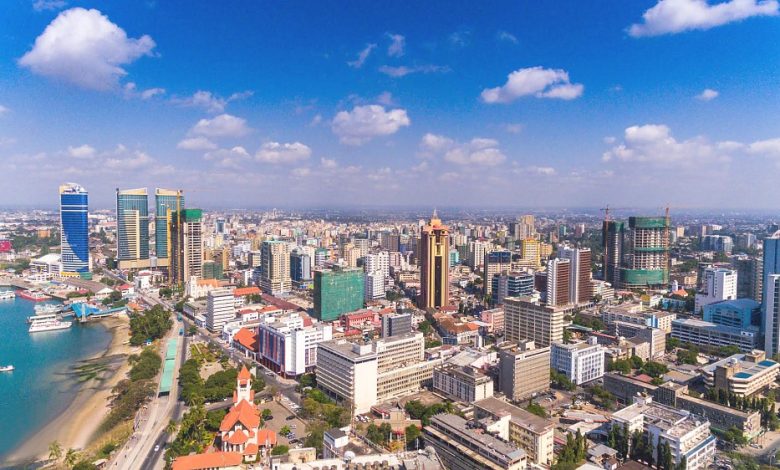Discipline, morals, markets: Tanzania’s trillion path

IMAGINE a Tanzania where GDP has crossed the trillion-dollar mark, a society with modern cities, bustling industries and citizens enjoying higher incomes and better opportunities.
This vision is within reach, but here’s the catch: The policies and institutions that guided us to this point will not carry us further. As our society becomes more urbanised, more literate and equipped with greater disposable income, the demands on government, businesses and institutions will intensify.
We will need to rethink how we manage growth, how we channel resources and how we uphold discipline and moral responsibility in the face of prosperity.
Why Pragmatism Matters
At our current stage of development, ambitious visions often dominate the national discourse. But as we transition into a more complex economy, pragmatism must replace rhetoric. This means adopting policies that work in practice, not those that merely sound good on paper.
Modernisation of some sectors, especially agriculture, will or could make greater number of people unemployed, where we have limited opportunities of exporting labour. That is where a pragmatic, holistic planning and implementation is necessary.
Pragmatism requires tailoring strategies to our reality: Building industries around our abundant labour and resources, sequencing reforms sensibly and creating a financial environment that mobilises domestic capital before rushing for external borrowing.
This is where capital markets play a central role. Capital markets are not abstract financial playgrounds; They are the arteries through which savings become investments.
As citizens earn more, their savings, when properly channeled, can finance the infrastructure, industries and technologies needed for a trillion-dollar economy. Without vibrant capital markets, we risk relying excessively on expensive foreign debt, leaving our growth fragile and externally dependent.
Discipline and Morals: The Invisible Foundations
Rising incomes often bring rising temptations. Without discipline in public finance, consumer spending and long-term planning, growth can quickly turn into bubbles and instability. Pragmatic fiscal management by prioritising investment in productive assets, avoiding reckless borrowing and demanding accountability, will be nonnegotiable.
ALSO READ: The power of patience: Think long-term
But discipline alone is not enough. Morals must guide how wealth is created and shared. Corruption, nepotism and waste have already cost us dearly. In a trillion-dollar economy, the consequences would be even greater.
Transparent institutions, honest leadership and a citizenry that values integrity will be the true foundations of sustained prosperity.
Lessons from Asia: China’s Pragmatic Rise
China’s remarkable rise offers a mirror for us. In the late 1970s, China was still poor and agrarian.
Today, it is the world’s second-largest economy. Its success was not built on rigid ideology but on pragmatism – experimenting with reforms, blending markets with state guidance and relentlessly investing in infrastructure, manufacturing and human capital. Chinese saying here comes in handy: “…crossing the river by feeling the stones”. Equally, China understood the importance of mobilising domestic savings.
Through disciplined institutions, household deposits were systematically channeled into national development projects. The result: Highways, high-speed trains and world-class cities – all built on the foundation of local capital rather than foreign charity.
Africa’s demographic advantage, its youthful population, gives us a similar opportunity. But we must learn from Asia’s emphasis on pragmatism, discipline and long-term moral framing of development. We should take note however that some factors that caused China’s meteoritic economic rise aren’t the same for us, mainly export-led growth.
This was propelled by admission into the World Trade Organisation coincidentally to most manufacturing jobs moving from the West to Asia to capitalise of cheaper labour. Hence, borrowing from computing actions, “copying” should be accompanied by some sort of “brain processing” before “pasting”.
Institutions That Must Evolve
For Tanzania to move confidently into the trillion-dollar league, several institutions must undergo profound transformation:
• Capital Markets: They must deepen and broaden, offering ordinary citizens accessible ways to invest in infrastructure, industries and innovation. Stock exchanges, bond markets and collective investment schemes are not luxuries; They are necessities for sustainable growth.
• Financial Regulators: Institutions must ensure trust, transparency and investor protection to encourage widespread participation in savings and investments.
• Education Systems: Beyond basic literacy, they must produce engineers, scientists, entrepreneurs and financial experts capable of driving and managing a modern economy.
• Urban Authorities: Cities will need professional planning, efficient transport and green infrastructure to accommodate the inevitable waves of urbanisation.
• Governance Structures: A trillion-dollar economy cannot function on fragile bureaucracies; It requires institutions that are efficient, transparent and accountable.
The Call Ahead
Reaching a trillion-dollar economy is not only about multiplying GDP figures; It is about managing the journey responsibly. Pragmatism will help us avoid wasteful detours. Discipline will keep us on track.
Morals will ensure the gains benefit not just the few, but many. Above all, capital markets will serve as the bridge between household savings and national transformation, turning small contributions into big projects and private ambition into collective prosperity.
The road ahead is challenging, but the choice is ours: We can stumble with old habits, or we can build a trillion-dollar economy grounded in pragmatism, discipline and moral clarity. The Asian experience shows it can be done. Tanzania’s youth, resources and capital markets can ensure that it will be done.





